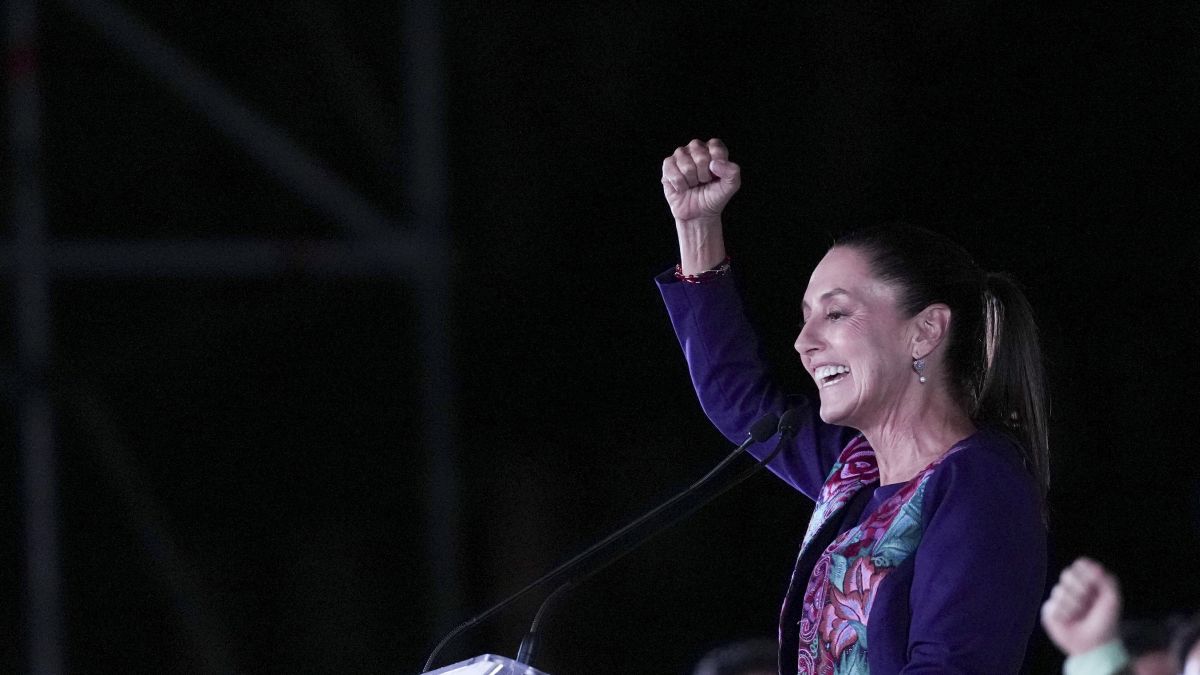It is history in the making in Mexico. Claudia Sheinbaum is all set to become the first-ever woman president of the country. It is every reason to celebrate but the job at hand is full of big challenges.
From managing migration and delicate relations with the United States to tackling pervasive criminal violence and mitigating climate change, Sheinbaum’s leadership will be put to the test on several fronts. Other priorities include lowering a poverty rate that exceeds 30 per cent and addressing the increasing effects of climate change in a country facing drought and water shortages.
The 61-year-old former mayor of Mexico City will succeed her mentor, outgoing President Andrés Manuel López Obrador. She will take over on 1 October.
Here’s what awaits her.
Taking on criminal cartels
Mexico is notorious for crime. It was evident during the election season, which was marred with violence – several candidates were killed.
“The ominous spread of organised crime and flourishing cartels is the most daunting problem Sheinbaum will need to confront,” Michael Shifter, an expert at the Inter-American Dialogue think tank in Washington told AFP.
Roughly 80 people are murdered every day in Mexico, including around 10 women and girls, despite outgoing Obrador’s “hugs not bullets” policy of tackling crime at its roots. More than 100,000 people are missing and desperate relatives organise their own searches for remains.
Impact Shorts
More ShortsIf Sheibaum is unable to halt the “dramatic deterioration” in Mexico’s security situation, advancing her economic and social policy agenda will be “extremely difficult”, Shifter said.
The environmentalist-turned-politician has committed to eradicating impunity and, similar to Obrador, addressing the root causes of violence by bringing in measures such as expanding youth programmes. She has also vowed to reinforce the National Guard and intelligence agencies and enhance coordination with police and prosecutors.
Fiscal deficit, poor infra
Sheinbaum inherits a fiscal deficit of almost six per cent of the gross domestic product, the largest in a quarter of a century, despite Obrador’s austerity pledges.
“The most important challenge for the next administration will be to correct the high fiscal deficit,” said Victor Ceja, chief economist of financial services firm Valmex.
To fund direct aid programmes for 25 million young, elderly, and disabled Mexicans and implement necessary reforms, the president-elect must find ways to increase state revenue.
“There’s a lot she needs to spend money on, and there’s no money,” said Pamela Starr, a professor at the University of Southern California. “The infrastructure is creaking. Electricity is a problem.”
Sheinbaum has touted the benefits of nearshoring, the trend of companies moving production from Asia to be closer to the US market.
She has highlighted the advantages of nearshoring, where companies relocate production from Asia to be nearer to the US market.
However, Carlos Ramirez, an expert at the risk consultancy Integralia, cautioned that this would not be a “lifesaver” for Mexico and that better security and infrastructure were needed.
With her background in environmental science, Sheinbaum has also pledged to boost investment in clean energy.
Addressing migration
Despite a growing economy and political stability, criminal violence causes thousands of Mexicans to seek asylum in the United States.
In 2023, nearly a third of the almost 2.5 million migrants intercepted at the southern US border were Mexican.
Sheinbaum said she would ensure there would be “a relationship of friendship, mutual respect and equality” with its northern neighbour.
Stephanie Brewer, of the Washington Office on Latin America rights group, criticised the “containment, detention and border militarisation” measures that Obrador ordered at the request of the United States.
Mexico’s relationship with the US has been testy and has suffered under the leadership of Obrador who has been in power since 2018.
Sheinbaum faces “the urgent task of breaking this cycle” and prioritising the protection of migrants, Brewer said.
The White House presidential
Mexico’s relationship with the United States is complex at the best of times, with Washington pressing its ally to do more to curb cross-border flows of drugs and migrants.
Ties could become even more challenging if Donald Trump returns to the White House, according to experts.
If President Joe Biden loses the November election, “the relationship will be more punctuated by conflict,” Starr said.
According to Shifter, “If he returns to the White House, Trump is expected to double down on his hardline stance on immigration, trade, and drugs, very sensitive issues crucial to the bilateral relationship.”
With inputs from AFP


)

)
)
)
)
)
)
)
)



